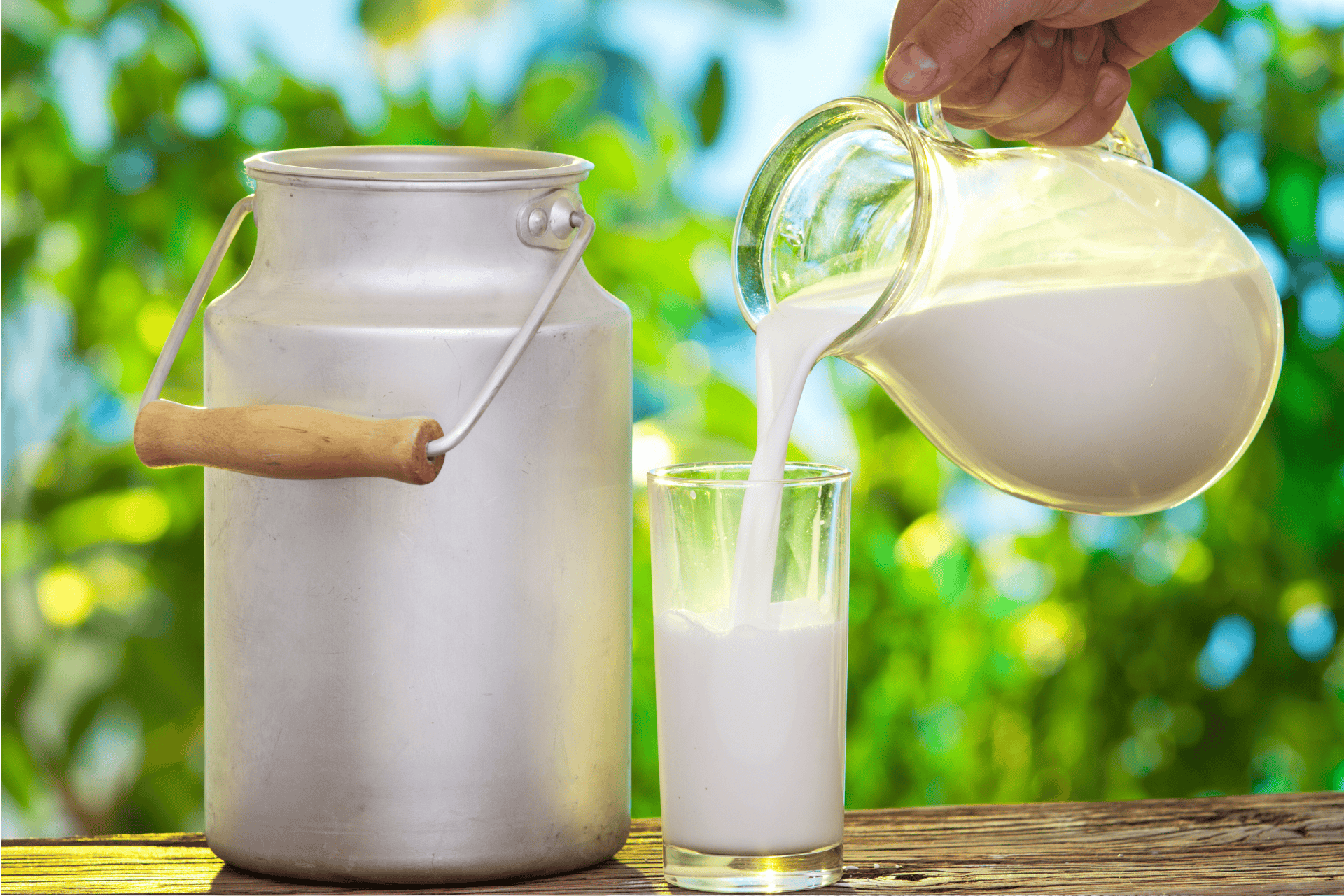Is Milk Good or Bad for Heartburn?
Heartburn is a common discomfort experienced by millions worldwide. It occurs when stomach acid flows back into the esophagus, causing a burning sensation in the chest or [...]
Read More
Medically reviewed by Alan Lucks | MD, Alan Lucks MDPC Private Practice - New York on October 29th, 2025.
Whole milk's 3.25% fat content relaxes the lower esophageal sphincter within 2-3 hours, triggering rebound acid production despite initial alkaline buffering that temporarily neutralizes stomach acid.
Skim milk and 1% fat varieties provide similar immediate relief without the sphincter-relaxing effects, while plant-based alternatives like almond milk (0.5% fat) carry minimal reflux risk.
Consuming more than 8 ounces of any milk type increases gastric pressure and distention, potentially forcing stomach contents upward regardless of fat content.
Cold milk offers superior symptom relief compared to warm milk, as lower temperatures help constrict blood vessels and reduce inflammation in the esophageal lining.
Heartburn occurring more than twice weekly for several weeks may indicate GERD, which affects 20% of adults and requires medical evaluation beyond dietary modifications.
Heartburn is a common discomfort experienced by millions worldwide. It occurs when stomach acid flows back into the esophagus, causing a burning sensation in the chest or throat. Many people look for quick remedies to soothe this irritation, and milk often comes up as a popular choice. But is milk truly helpful, or could it potentially worsen heartburn symptoms?
Understanding how milk interacts with stomach acid and the digestive system is key to answering this question. This article explores the effects of milk on heartburn, the science behind it, and alternative ways to manage this condition effectively. Whether you occasionally experience heartburn or suffer from chronic acid reflux, knowing the right approach can make a significant difference in your comfort and health.
For those seeking personalized advice or quick medical insights, telehealth services like Doctronic.ai offer AI-powered doctor visits 24/7, providing expert guidance based on the latest medical research. With convenient access from anywhere in the U.S., Doctronic can help you understand your symptoms and recommend treatment options promptly.
 How Milk Affects Heartburn
How Milk Affects HeartburnMilk has long been considered a natural remedy for heartburn because of its cooling and soothing properties. When you drink milk, its creamy texture can temporarily coat the lining of the esophagus and stomach, providing relief from the burning sensation. Additionally, the calcium in milk can help neutralize stomach acid to some extent, offering short-term comfort.
For many people, a small glass of milk might reduce heartburn symptoms quickly, especially if the heartburn is mild or occasional. This immediate relief is why milk is often recommended as a home remedy for acid reflux. The comforting nature of milk can also have psychological benefits, as the act of consuming a familiar and soothing beverage can provide a sense of calm during uncomfortable episodes of heartburn.
Interestingly, the type of milk consumed can also play a role in its effectiveness as a remedy. For instance, some people find that low-fat or non-fat milk may be less likely to trigger heartburn compared to whole milk, as the reduced fat content may not relax the LES as significantly. Additionally, flavored milks, such as chocolate or strawberry, may contain added sugars that could exacerbate symptoms for some individuals, making it crucial to choose wisely when seeking relief.
Despite its temporary soothing effects, milk can sometimes make heartburn worse, particularly in the long run. Whole milk and full-fat dairy products contain fat, which can relax the lower esophageal sphincter (LES), the muscle that prevents stomach acid from flowing back into the esophagus. When the LES is relaxed, acid reflux is more likely to occur, increasing heartburn symptoms.
Moreover, the initial neutralizing effect of milk can stimulate the stomach to produce more acid later, leading to a rebound increase in acidity. This means that after the initial relief, heartburn might return with greater intensity. For individuals with chronic acid reflux or gastroesophageal reflux disease (GERD), drinking milk may not be the best strategy. It’s essential to consider the overall dietary pattern, as certain foods and beverages can interact with each other, potentially exacerbating symptoms. For example, pairing milk with acidic foods like tomatoes or citrus can create a recipe for discomfort, as the combination may overwhelm the stomach's ability to manage acid levels effectively.
Additionally, some people may experience lactose intolerance, which can further complicate the relationship between milk and heartburn. For those who are lactose intolerant, consuming milk can lead to bloating and gas, which may mimic or worsen heartburn symptoms. In such cases, exploring lactose-free alternatives or other non-dairy options might be a more suitable approach to managing heartburn while still enjoying a soothing beverage. Understanding one’s own body and how it reacts to different foods can help in making informed choices that promote digestive comfort.
If you find that milk helps your heartburn but worry about the fat content, opting for low-fat or skim milk could be a better choice. These versions contain less fat, which reduces the risk of relaxing the LES and worsening reflux symptoms. Additionally, low-fat milk retains many of the essential nutrients found in whole milk, such as calcium and vitamin D, which are important for bone health. This makes it a suitable option for those looking to maintain their nutritional intake while managing heartburn.
Non-dairy milk alternatives such as almond milk, oat milk, or soy milk are also worth considering. These plant-based milks are generally lower in fat and may be less likely to trigger heartburn. Almond milk, for instance, is not only low in calories but also rich in vitamin E, an antioxidant that can help protect your cells from damage. Oat milk, on the other hand, is known for its creamy texture and can be a great source of fiber, which aids in digestion. However, individual reactions vary, so it’s important to monitor how your body responds to different types. Some people may find that certain additives in flavored non-dairy milks, such as sweeteners or thickeners, can exacerbate their symptoms, so opting for unsweetened versions is often a safer bet.
 Moderation Is Key
Moderation Is KeyRegardless of the type of milk, moderation is crucial. Drinking large quantities of milk can increase stomach volume and pressure, promoting acid reflux. A small glass may provide relief, but excessive consumption can backfire. It's also important to consider the timing of milk consumption; drinking milk close to mealtime may help buffer stomach acid, but consuming it right before bed could lead to discomfort during the night. Additionally, pairing milk with certain foods can influence its effects on heartburn. For example, combining milk with high-fat or spicy foods might negate its soothing benefits, while enjoying it with whole grains or fruits may enhance digestion and comfort.
Besides milk, many foods and beverages can influence heartburn. Spicy foods, caffeine, chocolate, and acidic foods like citrus and tomatoes are common triggers. Reducing or avoiding these can help manage symptoms.
Eating smaller, more frequent meals instead of large portions can also reduce stomach pressure and acid reflux risk. Avoiding eating close to bedtime is another useful tip, as lying down with a full stomach often worsens heartburn.
Maintaining a healthy weight, quitting smoking, and elevating the head of your bed can significantly reduce heartburn episodes. Tight clothing around the abdomen should be avoided as it can increase pressure on the stomach.
Frequent or severe heartburn may indicate GERD or other underlying conditions requiring medical attention. If over-the-counter remedies and lifestyle changes do not improve symptoms, consulting a healthcare provider is essential.
For quick, reliable medical advice without leaving home, consider using Doctronic.ai. This AI-powered telehealth service offers free AI doctor visits and affordable video consultations with licensed physicians across all 50 states. With over 10 million users, Doctronic combines cutting-edge medical knowledge with personalized care to help you manage heartburn and other health concerns efficiently.
Milk can provide immediate relief from heartburn due to its soothing texture and mild acid-neutralizing properties. However, its fat content and potential to stimulate acid production later may worsen symptoms for some individuals, especially those with chronic reflux.
Choosing low-fat or non-dairy milk alternatives and consuming milk in moderation can help minimize negative effects. Alongside dietary and lifestyle adjustments, these strategies form a comprehensive approach to managing heartburn.
Remember, persistent or severe heartburn should be evaluated by a healthcare professional to rule out serious conditions. Doctronic.ai provides accessible, expert guidance anytime you need it, making it easier than ever to take control of your digestive health.
When heartburn strikes, you need fast, reliable, and personalized care. Doctronic is here to revolutionize your healthcare experience with our #1 AI Doctor, providing free AI doctor visits that synthesize the latest medical research to address your concerns. Our telehealth services offer the convenience of video visits with licensed physicians, available 24/7 in all 50 states, for less than $40. With over 10 million satisfied users, Doctronic delivers smarter, faster, and more personal medical advice. Skip the line. Talk to an AI Doctor Now, for free.
Choose skim or low-fat milk in small portions (4-6 ounces) for temporary relief, avoiding whole milk which worsens symptoms within hours. Cold, low-fat dairy or plant-based alternatives provide the safest option for those prone to acid reflux. If you're experiencing persistent symptoms, Doctronic can help you determine whether your heartburn requires professional medical attention.
Heartburn is a common discomfort experienced by millions worldwide. It occurs when stomach acid flows back into the esophagus, causing a burning sensation in the chest or [...]
Read More